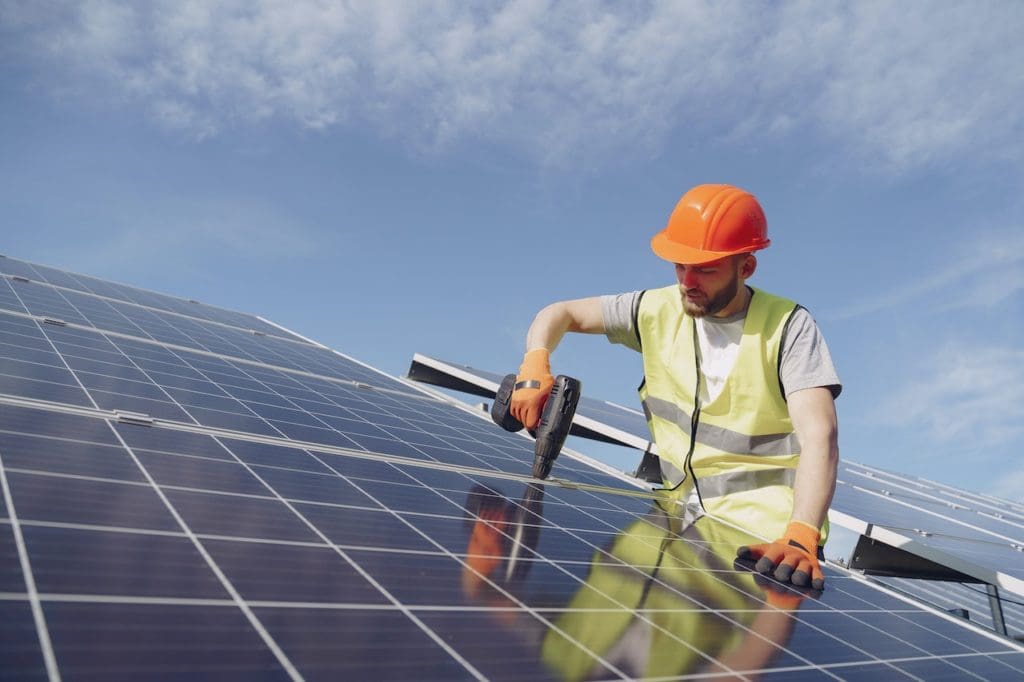1. How do you calculate the optimal system size for my energy use and financial return?
All solar installers should be able to provide you with an estimate of the savings you will make on your energy bills and total return on investment. While you may not be a financial mathematician – the sales representative should be able to explain this to you in layman’s terms and give you a summary of what assumptions they have made.
This is a complicated calculation and there are many assumptions that go into it. A couple of the most important assumptions are:
- How much of the solar energy they are assuming you will self-consume. For residences where everyone is at work during the day, this can be as low as 20-30% and will significantly affect your ROI and energy bill savings.
- At what rate do you assume that the cost of power increases each year? Take care here, no one knows what the prices will be in the future but putting a big increase in each year will make solar look good.
To do your calculations with consistent assumption put your quotes into the Solar Choice Payback Calculator.
2. What can I do to improve my solar return on investment?
There are generally several options available to you to improve the financial outcome of installing solar on your home. To name a few:
- Applying for state or other grants/rebates
- Shifting as much energy consumption as possible to between daylight hours (water heater, pool pump, washing machine, dishwasher)
- Limiting system size to ensure you can export unused energy (if required)
- Using tilt frames on south-facing roof space
Your solar installer should be able to take a look at your roof space and listen to your energy use patterns and make a holistic recommendation to ensure you get great value for money.
3. What happens if something goes wrong with the system and how long is your workmanship warranty?
Our quote comparison shows you the installers’ workmanship warranty, but each installer services systems differently. For Clean Energy Council Approved Solar Retailers the minimum worksmanship warranty length is 5 years.
In the event of a system failure – try to get an understanding of:
- Who do you call?
- What is their process of sending someone out, how long does that usually take?
- What costs of this call-out do you need to cover (if any)?
- How long has your company been servicing solar systems?
This is a multi-question question, but an important one for you to understand!
4. Do the product brands (Solar Panels & Inverter) have local offices in Australia that I could claim a warranty at if your company was no longer around?
Inevitably, solar businesses don’t last forever. We’ve seen many of the cheap and nasty companies go out of business and we have also seen many installers who were attempting to do the right thing by their customers go out of business.
As a result, there are many ‘orphaned’ solar systems in Australia. To ensure you have some options if something goes wrong during the warranty periods, buy products that have an Australian office and Australian warranty claim process that you could do yourself as a customer. The solar installer should be able to direct you to the website or contact persons.
You can also read through our independent reviews of solar panels, inverters and batteries here.
5. Is there another local customer I can talk to before I buy with you?
Companies that are delivering good quality systems have bucketloads of happy customers and they should have no problems finding a local customer who would be happy to have a quick phone call with you before you make your purchase.
Talking to a past customer can be much more revealing than talking to a sales rep who has a practised answer to all your questions.
- Solar Panel Costs: Solar Choice Price Index | April 2025 - 1 April, 2025
- Solar Panels For Homes – All You Need to Know About Solar Systems - 18 March, 2025
- Best NSW Solar Feed-In Tariffs - 17 March, 2025

I really agree with you, especially about asking other customers and finding out about warranty. (I had issues with a sungrow warranty and it was a nightmare)
But i also think it is critical to ask about where your PV system comes from.
Chinese panels have been linked to human rights issues like the forced slavery of Uighur people to mine, refine, and work with the raw silicone.
Chinese made inverters are another big risk. Because modern inverters, or smart inverters, are connected to the internet the companies are required to turn over any of your data to the Chinese Government if the government asks for it. They could also be remotely controlled by the Chinese Government.
Hi Bryce, this is really alarming. Do you have any sources to support these claims! They seem too outrageous to be true to me.